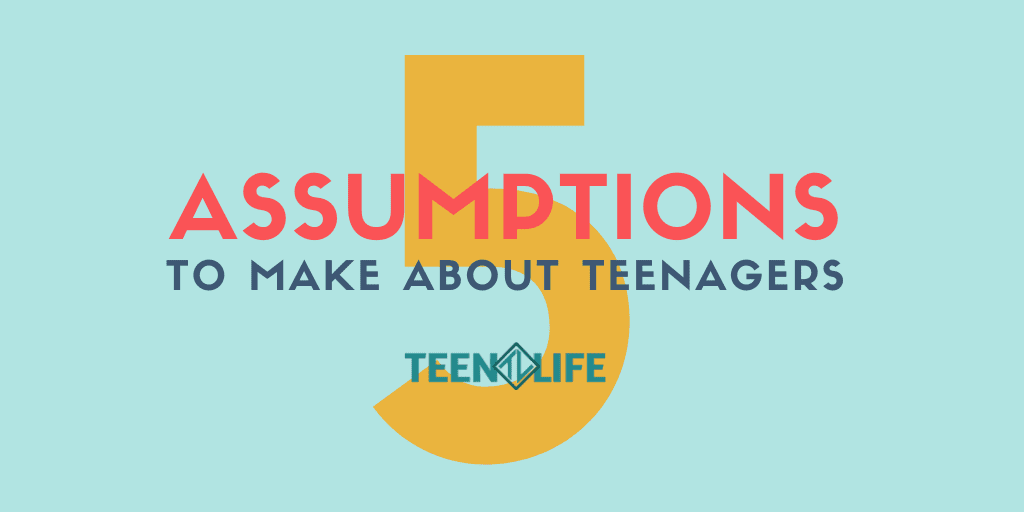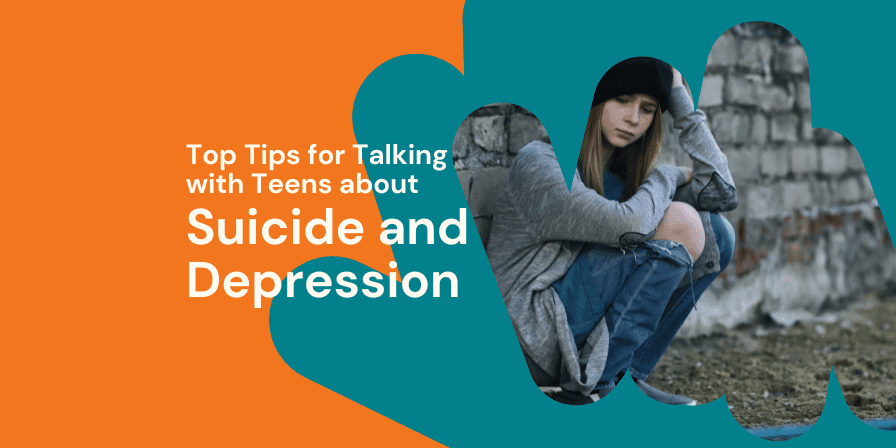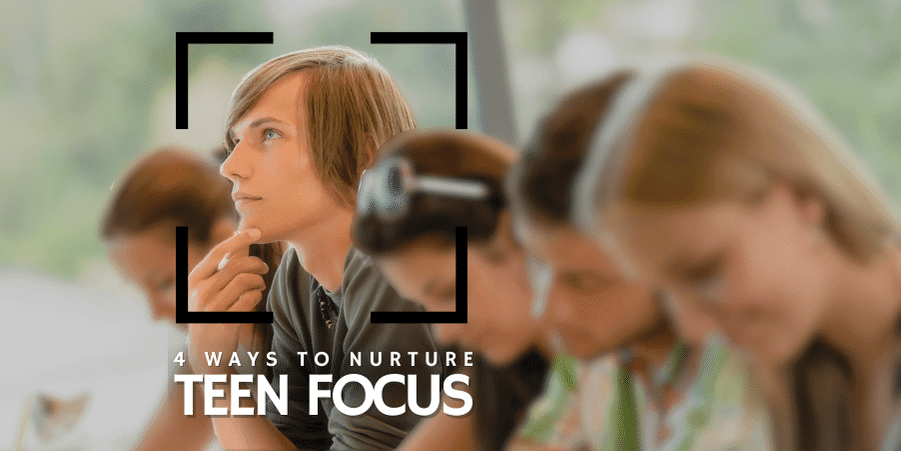Sometimes it’s okay to make assumptions.
Teenagers are easy targets to complain about…they cost a lot of money, eat way too much food, do weird and sometimes awkward things, spend a ton of time on their phones or gaming systems, and often cause drama with the whole going-through-puberty thing.
Anytime I tell someone that I work with teenagers, I often hear statements like, “Bless your heart.” Or, “I could NEVER do that, good for you!” Sometimes I get questions like, “Don’t teenagers drive you crazy?” “How can you handle working with middle schoolers all the time??”
But here is my secret…I often make assumptions when it comes to teenagers.
We all make assumptions. However, these are not the assumptions that the well-meaning people made above. It is probably not even the assumptions you would expect. In order to work with teenagers (and genuinely enjoy it), I encourage you to make some of these assumptions as well…
Assume teenagers are trying their best.
Put yourself back in middle school or high school. Do you remember that feeling? Adolescence is HARD. You could not pay me to do it again…so I always assume that teenagers are doing the best they can in a very difficult situation. It would be really easy to assume that annoying or difficult teens are acting that way on purpose. But when we label students negatively, that is all we will see, and it is how they will continue to act. When you treat students like they are good kids coming from hard places, it can change everything for you and them. Let’s give some grace and some help when they need it.
Assume teenagers are searching for hope.
Even the most troubled teenagers I know want their future to look better. They have dreams and goals. They want to graduate and go to college or get well-paying jobs. They want to start families and have a happy life. I have yet to talk to a student who wants their future to be worse than their present situation. Hope is a powerful motivator! Unfortunately, teenagers often don’t know where to start to reach their goals. Which is why we have to assume the next point…
Assume teenagers have the skills they need.
When we talk to students in our Support Groups, we often talk about the resources, skills, and strengths that they already possess. We don’t always give them new skills; instead, we point out the people in their lives who can help. We have them think through the strengths that they can grow and improve. We ask them to think differently about themselves while giving encouragement and hope. Teenagers are not dumb. They are not helpless children. It makes a big difference if we assume that they are capable. Will you be an adult who can help them realize their potential instead of telling them how they have messed up? Will you encourage, equip, and empower teenagers to face life’s challenges?
Assume teenagers are fun to be around.
Teens are hilarious. They are fascinating creatures to watch and observe. They are adorably awkward. They often say exactly what they are thinking. They are goofy, spontaneous, and full of life. Why does this annoy us? What if we assume that they are fun? What if we looked forward to spending time with teenagers instead of dreading it? Maybe they don’t need to be less exhausting…maybe we need to be less old. We need to change our perspective!
Assume teenagers want to talk.
You might be shocked by what teenagers are willing to share with adults. Within a few minutes in a Support Group, I can know about a teenager’s family, interests and hobbies, how their day is going, and how connected they feel to others. They want to talk. They are looking for safe environments to share and be vulnerable. Are you asking the right questions? Are you positioning yourself to be a trustworthy adult? Take the time to connect with the teenagers in your life. Be prepared to listen…really listen, without judgement or interjections. Have patience and be willing to ask two or three times.
Teenagers are bold and fun.
I encourage you to trade your current assumptions for something more positive. Teenagers have enough to deal with – let’s take our perceptions off their plate and assume the best!

Karlie Duke
Communications Director
Karlie Duke | Director of Communications
Karlie has always had a heart for teenagers. Through her role at Teen Life, she loves to showcase the amazing stories coming out of Support Groups, but she is especially passionate about helping adults and teenagers find connection. Karlie has a BS in Communications with a minor in Family Studies from Abilene Christian University.




Morning Karlie,
What advice can you help me give my husband, stepdad to my teenage daughters of 15 and 17 about what he deems are obvious matters, which are not in my mind to teenagers still learning about life.
I do my best not to fight with him over the girls, as their relationship is theirs to grow, but I try guide it with simple explanations as I understand it too. Without ‘protecting’ them. Hoping to guide them all to talk life out instead
It’s tough going sometimes.
I hope you can help shed some light.
Many thanks
Tracy
Hi Tracy!
Thanks for reading the blog and reaching out! Since I don’t know all the specifics of your family and relationship with your husband, I would encourage you to read or listen to something together. It might feel less like homework and could lead to a great discussion on what you both learned. This website has some great resources, or Teen Life has a weekly podcast for parents and helpers of teens. We often bring up questions to ask your teen and encourage connection. One of those could be a great starting place!